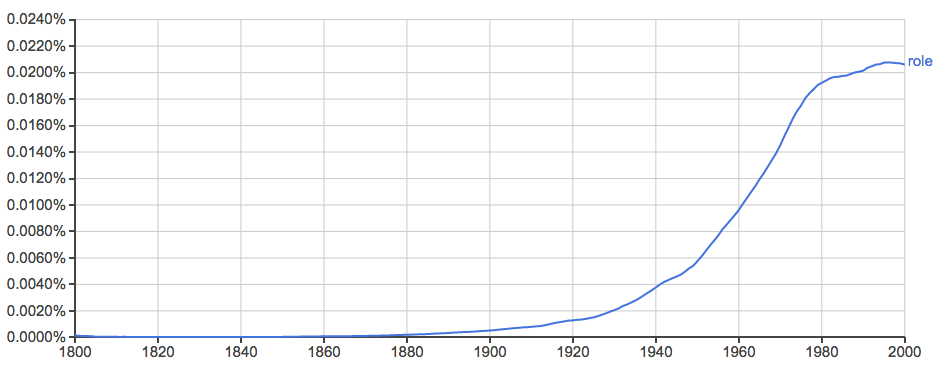Gizen does not mean “hypocrisy”
When you look up the word gizen 偽善 in a Japanese-English dictionary, the word “hypocrisy” often comes up. But the two words are very different.
According to Daijirin, gizen means “a good deed that doesn’t come from the heart, but is only for appearances’ sake.” But Merriam-Webster defines hypocrisy as “the behavior of people who do things that they tell other people not to do”, and Wikipedia defines it as “the practice of engaging in the same behavior or activity for which one criticizes another.”
DictJuggler gives gizen the amusing psychological translation of “dissimulation.” Gizen refers to good deeds that do not match an inner attitude, and modern “hypocrisy” refers almost exclusively to bad deeds that do not match an outer attitude. How did this happen?
In fact, a shocking thing has happened to the English language. The Japanese-English pairing given would have been accurate 100 years ago, which is likely where dictionaries get their definitions. For example, this is an accurate translation of Edward Allen Poe’s “The Tell-Tale Heart“:
I could bear those hypocritical smiles no longer!
偽善者め、こんな作り笑いにはもう我慢できない!
(Mr. Poe’s narrator uses the word “hypocrite” to indicate that he was not being taken seriously and he knew it.)
But this is no longer an accurate pairing for modern usages, because the original meaning of “hypocrisy” has been changed, and a French loanword has been introduced into the English language to take its place: rôle. In modern English, gizen means “playing a role,” which is a behavior that sociologists somewhat crudely attribute to all human beings.
Before 1880, the word “role” was barely even used in English, as this Google Ngrams chart shows:
Nor was it common to think of people carrying out their duties as mere actors playing roles. This was described, before 1880, as “hypocrisy” — a word that meant behaving in a way not in accordance with your true feelings. Hypocrite comes from the Greek hypokrites ὑποκριτής, which simply means an actor in a play. From ancient times it was also used in such a derogatory fashion, in accordance with the traditional disdain for actors–a centuries-old prejudice which came to an end, perhaps not coincidentally, around 1900.
True, there was a character in a Shakespeare play who at one point mused, “All the world’s a stage, / And all the men and women merely players.” This character (Jaques, from As You Like It) was meant to be melancholy and forlorn, to a humorously exaggerated extent. Even in this sentence, his use of the world “merely” reflects how this statement offers a cynical and depraved view of humanity.
Rôle came to English through French, not in the works of any specific author, but as a slow trickle that eventually became a flood around the turn of the 20th century. Given that the French language also uses the word hypocrite, and presumably pre-20th century France had enough Greek speakers to know what it meant, how did the comparable word rôle come to take on a neutral connotation?
To answer this, I looked at an online dictionary of French, and discovered to my amusement that the earliest citation they have for the word rôle being used in a social or political sense is from the year 1789. To wit:
Mon rôle, à moi, est celui de tous les écrivains patriotes ; il consiste à présenter la vérité.
My rôle, to me, is that all of patriotic writers; it is to present the truth.Abbé Sieyès, “What Is the Third Estate?” (1789)
Why does Abbé Sieyès use the word rôle here instead of devoir (duty)? There are two obvious reasons for this:
1. Abbé Sieyès was a faithless clergyman who got a job at the Second Estate simply to fatten his bank account and further his writing career. He was already playing a rôle, and was a hypocrite in every sense of the word. It would not be too hard for him to see radical pamphleteering as just another rôle to play.
2. During the Revolution, perhaps, people recognized that they were not executing any duties. Even if they disingenuously claimed to be “presenting the truth,” in fact they were only actors playing rôles in enabling the disintegration of the monarchy.
In conclusion, I urge you to stop translating gizen and gizensha as “hypocrisy” and “hypocrite,” and instead to find more appropriate words that bring the point of the Japanese home. Also, I urge you to help fix the English language by referring to people who do good deeds for ignoble reasons as “hypocrites.” Minds will be blown.
Posted: February 14th, 2015 | Rectification of Names 1 Comment »


If you, like me, are a bit astonished by this information and you’re wondering how the word “hypocrite” was used before the meaning changed, I recommend watching the movie Gone with the Wind (1936). Here you can see the word being used correctly several times.
It is good to meditate on what you would think if you met a person like Scarlett O’Hara today, and how your description of her might vary from Rhett’s.